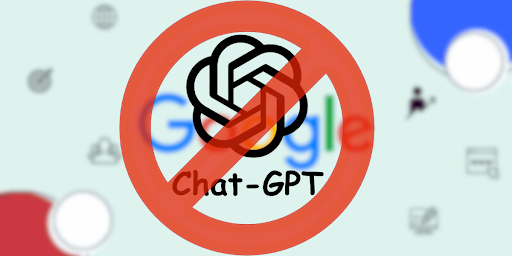
Meta Description:
Find out why Chat-GPT generated content is rejected by Google. Discover the dangers of duplicate content, E-A-T rules, and difficulties with SEO that AI-generated material faces.
Another reason is the difference in accuracy and trustworthiness. AI-generated content, while insightful, doesn’t always match the reliability of human-created content, increasing the chance of incorrect or misleading information appearing in search results. Google aims to present trustworthy and verified information to users, which becomes challenging if AI tools are directly involved. By focusing on these principles, Google ensures that users receive the best possible information without compromising on quality or reliability.
Introduction:
Many people question why Chat-GPT or other AI tools are in line with Google’s content guidelines as they become more and more popular in the content creation field. However, in terms of SEO rankings, there are plenty of reasons why “Google doesn’t fully accept Chat-GPT” content. Understanding these reasons is essential for content creators looking to succeed in search engine rankings.
There are several reasons why Google doesn’t directly include AI tools like Chat-GPT in its search results. Firstly, Chat-GPT’s information isn’t always updated and doesn’t provide real-time data, making it less reliable for the latest information. Secondly, AI-generated content may lack the accuracy and trustworthiness of human-written content, which could lead to the spread of incorrect or misleading information. Privacy and security concerns are also significant, as AI tools collect and analyze data, which can raise privacy issues. Lastly, Google’s algorithms and policies are designed to detect and filter AI-generated content to ensure users only see high-quality, relevant information.
1.Google Prioritizes Quality Content
While Chat-GPT can generate vast amounts of content quickly, ”Google prioritises quality over quantity”. AI-generated content may lack depth, originality, and the human touch, which Google algorithms favour. High-ranking content must provide value, unique insights, and in-depth analysis—factors that may be missing in purely AI-generated pieces.
2.Risk of Duplicate Content
A major problem with Chat-GPT is the risk of creating repeated or duplicate material, which Google restricts severely. There is a risk of unwanted plagiarism or duplicate content because Chat-GPT extracts data from previous datasets. Original and creative material that increases the internet’s value gets promoted by Google.
3.Outdated Information
Chat-GPT’s knowledge base has a cut-off, meaning it can’t generate content with real-time updates or the latest trends. Google ranks content based on its relevance and timeliness. If your AI-generated article lacks up-to-date data, Google will favour pages that are more current.
4.Not fulfilling E-A-T requirements
In its content ranking criteria, Google throws a high value on “E-A-T” (Expertise, Authoritativeness, Trustworthiness), particularly if it comes to delicate topics like finance or medicine. Because of its unclear authorship and lack of experience, Chat-GPT finds it challenging to keep to these guidelines. Google prefers content produced by experts or acknowledged professionals with an established record of success.
5.Over-Optimization and Keyword Stuffing
Although AI tools like Chat-GPT can optimise for SEO, there’s a risk of over-optimization or keyword stuffing. Google penalises content that’s stuffed with keywords or written primarily for search engines rather than humans. For better SEO, content should feel natural and offer value without overloading keywords.
Conclusion:
Although Chat-GPT can be a valuable tool for content creation, it’s essential to align your content with “Google’s SEO guidelines”. From producing original content to meeting E-A-T standards, the human touch still holds significant value in Google’s ranking system. Content creators should blend AI-generated assistance with expert insights to achieve the best results in search rankings.
By using SEO-friendly keywords like “Google’s content guidelines. “AI-generated content risks”, and “SEO penalties”, the article is optimised for both human readers and search engines, improving its chances of ranking well on Google.




